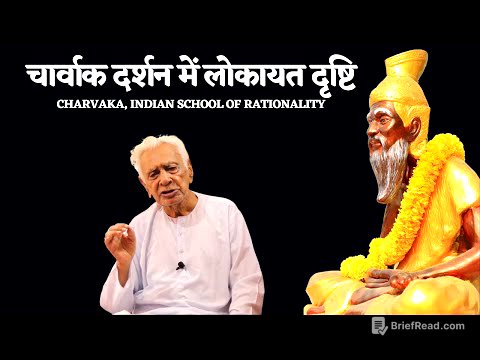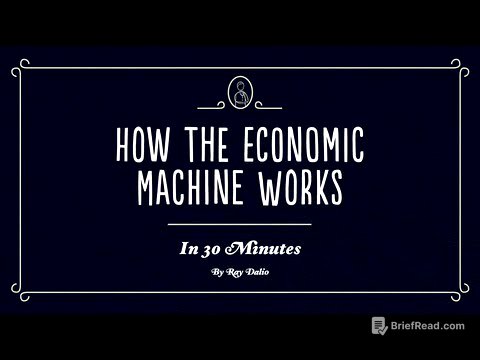TLDR;
This video argues that the UK government could save over £20 billion per year by stopping interest payments on commercial bank deposits held with the Bank of England. The speaker claims these deposits were not generated by the banks themselves but were created by the government during financial crises. He criticizes the current system, where banks receive interest on these deposits despite not earning them, and compares it to other countries like Europe and Japan where similar practices are not in place. The speaker encourages viewers to contact their MPs and urge them to stop these interest payments, arguing that the money could be better used to support those in need.
- The UK government could save over £20 billion per year by stopping interest payments on commercial bank deposits held with the Bank of England.
- These deposits were created by the government during financial crises, not earned by the banks.
- The speaker encourages viewers to contact their MPs and urge them to stop these interest payments.
Why Won't Rachel Reeves Save £20 Billion? [0:00]
The video begins by questioning why Rachel Reeves, the Shadow Chancellor of the Exchequer, is not taking action to save at least £20 billion per year by stopping interest payments on commercial bank deposits held with the Bank of England. The speaker highlights that Reeves has chosen to cut benefits for pensioners and those with disabilities, but argues that this is unnecessary as the government could save a significant amount of money by simply stopping these interest payments.
The Government Created the Deposits [0:57]
The speaker explains that the deposits in question were not generated by the commercial banks themselves but were created by the UK government during the global financial crisis (2008-2015) and the COVID-19 crisis (2020-2021). This money creation process involved injecting over £800 billion into the UK economy through the Bank of England. Due to double-entry bookkeeping, a corresponding deposit had to be created in the banks' accounts to match the money injected into the economy. The speaker emphasizes that these deposits were not earned by the banks but were created by the government.
Interest Payments are Unnecessary [2:12]
The speaker argues that it is absurd for the government to pay interest on these deposits, as the banks did not contribute to their creation. He compares the situation to a bank randomly depositing £10 million into someone's account and then charging them interest on it. He criticizes Rachel Reeves for pretending that these deposits are genuine and that the government is obligated to pay interest on them. He points out that the European Central Bank and the Bank of Japan do not pay interest on similar deposits held by commercial banks.
The Cost of Interest Payments [3:37]
The speaker calculates that the current interest rate on the £700 billion in deposits is 4.5%, resulting in over £30 billion in interest payments per year. He suggests that the government could cut interest payments on a portion of these deposits, for example, £500 billion, which would save over £20 billion per year. He argues that this cost would be borne by the commercial banks, who have been profiting from these excess payments for years.
A Choice to Make [4:29]
The speaker presents a clear choice: continue to benefit the wealthy by making these interest payments or cut them and use the money to support those in need, such as people with disabilities, those on low pay, and pensioners. He argues that the money could be used to help those struggling with the high cost of energy and other essential expenses. He encourages viewers to contact their MPs and urge them to stop these unnecessary interest payments.









